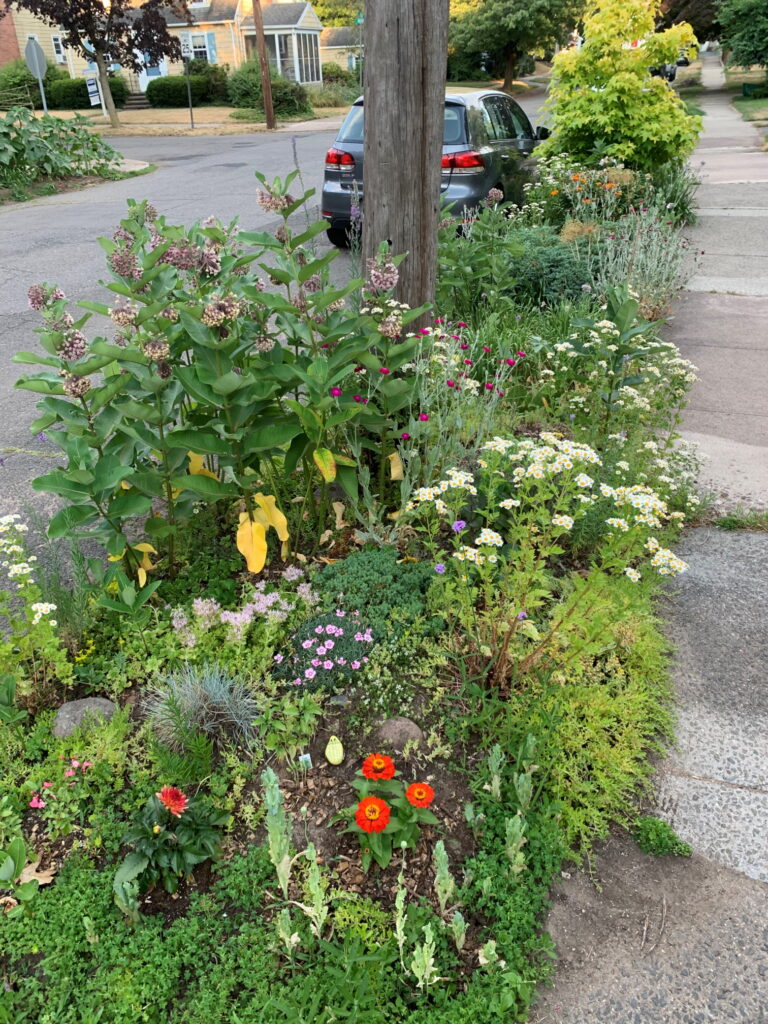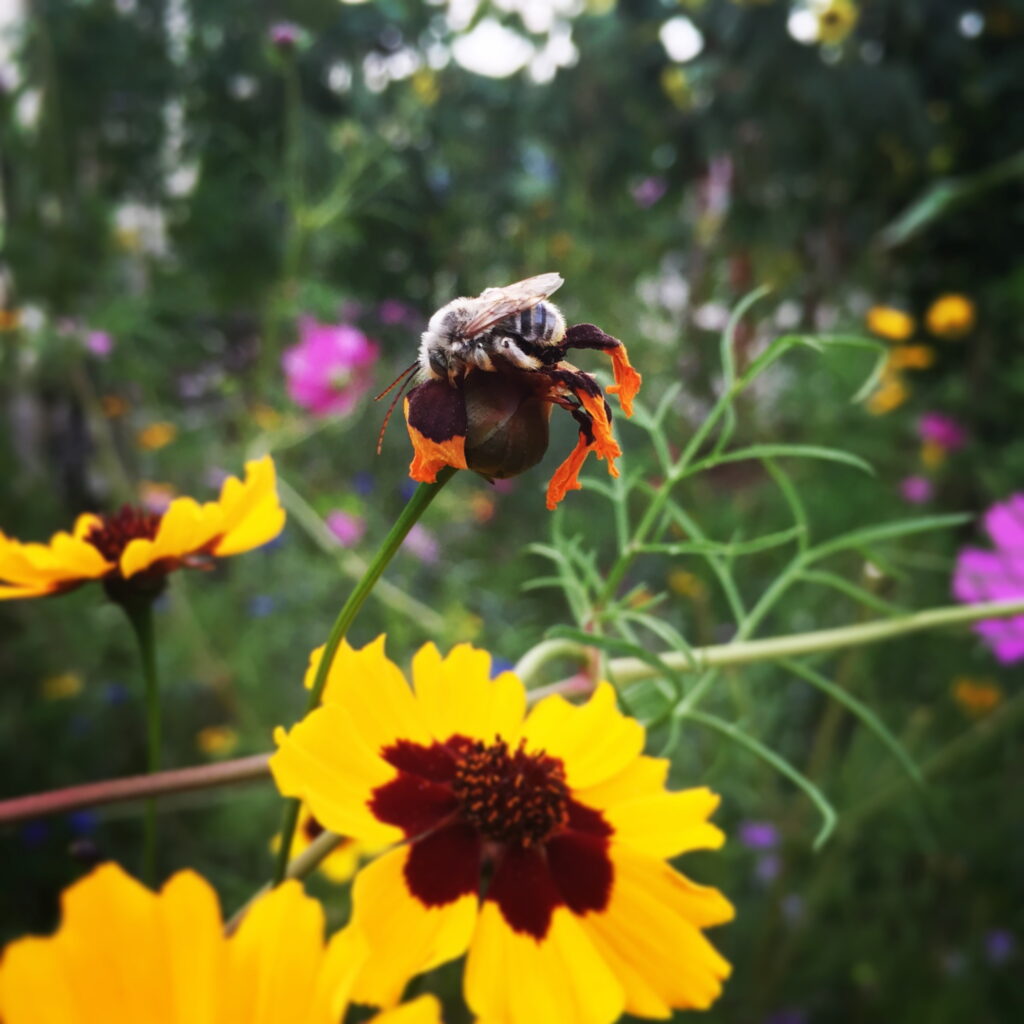By Sharon Selvaggio, Pesticide Program Specialist, The Xerces Society
Walking through my neighborhood, I feel a sense of peace when passing homes with flowering plants. Even the tiniest yard is vastly improved with the addition of a few flowers, lending a bit of beauty and a sense of harmony to the unassuming 1950s era streets.
At home, and in our neighborhoods, we seek to meet many needs: Nourishment. Beauty. Harmony. Relaxation. Safety. Community. It’s easy to forget that to meet these needs, we depend on the work of others—including other species. The salsa I just ate with chips for a quick snack was made with tomatoes, produced after bees (probably bumble bees) visited tomato flowers to gather pollen for their nests. Pollen is nourishment for bee offspring. Groceries for the developing larvae.
Here at the Xerces Society, we talk about “habitat” a lot. Habitat is a dry, somewhat boring word for what we really mean—home for pollinators. And just like our homes, pollinator habitat should meet several needs. Food. A place for the next generation to get their start. Safety. Shelter.

Unlike bees, we humans get a lot of messages about what our homes should look like. Some of these messages come from our neighbors and peers. A lot of these messages come straight through commercial advertising. For example, the perfect weed-free lawn is idealized—and made possible, in many yards, only through a toxic dose of herbicide. The perfect manicured home is promoted with the image of a tough guy getting his yard chores done, including killing weeds, quickly and efficiently.
Those herbicides not only kill off the flowering plants that might naturally co-occur with grasses, but they can also hurt bees directly. For example, for years people thought glyphosate, the ingredient in America’s most popular weed killer, was harmless to animals, because the way it works is to interfere with an enzyme only found in plants and bacteria. No problem, right? It turns out, just as we humans depend on a rich flora of bacteria in our guts to help digest our food, so do bees. The “gut microbiome” is not only involved in digestion but also in immune response, for both humans AND bees. Studies have found that glyphosate shrinks the number of beneficial gut bacteria in honey bee stomachs. And surprise surprise… bees with microbiomes that have been altered by exposure to glyphosate early in their lives are more likely to die after encountering disease.
It’s mind-blowing really. Thinking back to high school, I seem to remember learning about bacteria as mainly disease-causing organisms. We now know that we can’t survive without them, and bees are apparently just as dependent on bacteria as we are. The Lactobacillus bacteria in our own guts, which many people strive to increase by eating high quality yogurts, is also a major bacterial species in bee guts, promoting health in bees, just like in people. And glyphosate can kill it off, along with other important bacterial species in bee’s guts.

I trace the links that I’m only now beginning to understand. Me. Flowers. Bees who visit the flowers and produce our food. The microbiome that I share with bees, that helps both of us stay healthy. The herbicides that shrink the microbiota populations. The poorer health of the bees that follows loss of their microbiota. Is there poorer health for me too if I’m eating food contaminated with glyphosate or other pesticides?
Another word comes to me. A need I didn’t know I had. Interdependence. To stay healthy, I need to support the bees that nourish us. I see more clearly that one simple thing I can do is help make sure their homes are safe. For me, that means not only planting flowers, but also avoiding the herbicides, fungicides, and insecticides that have proliferated on shelves in every garden center. Just avoiding glyphosate isn’t the right answer…do we really know the effects of other herbicides? Ultimately, It means finding other ways to deal with weeds where I don’t want them – or even better, preventing them in the first place.
Won’t you join me in thinking twice about your use of these chemicals?
Resources:
Learn more about reducing pesticide use and impacts at the Bee City USA website.
Don’t forget about the risks of weed and feed type products. Read labels before buying any fertilizer.





